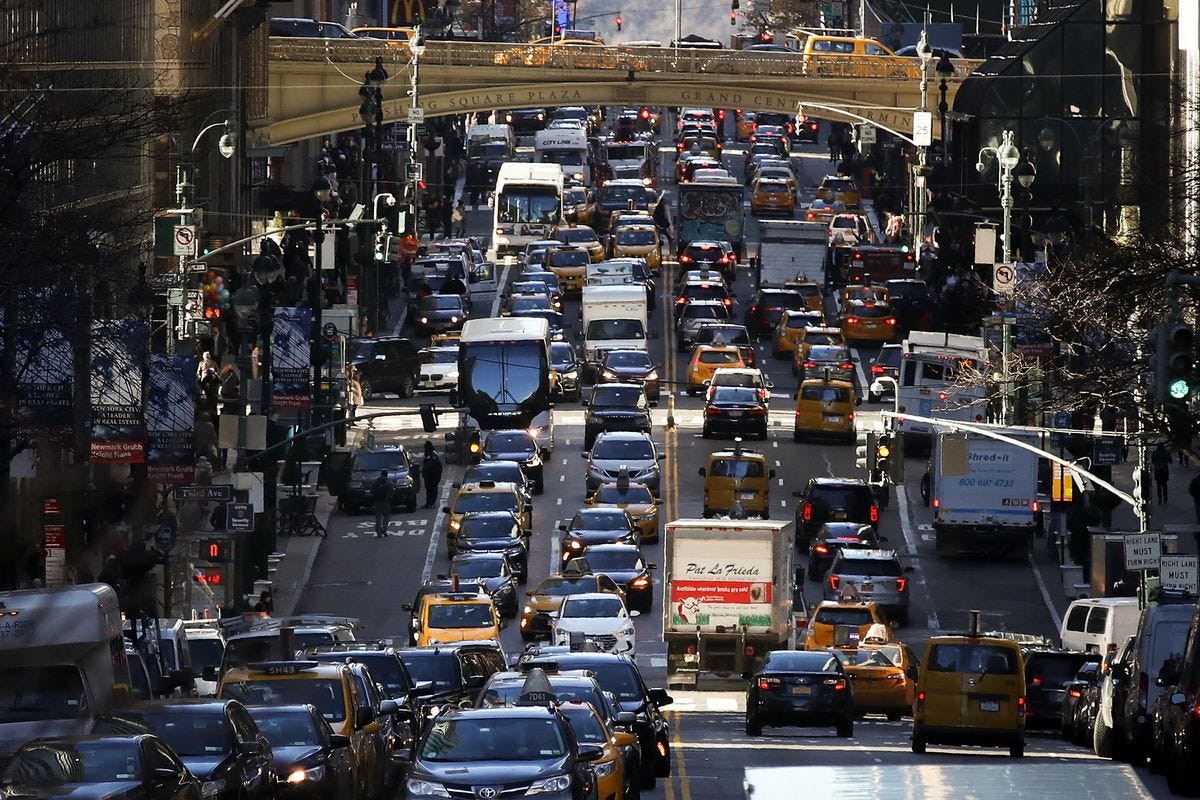The Case For Literally Never Driving Again
There’s no greater daily risk to life and limb assumed by the average person
“What would you do if you were rich?”
Lots of things, as you’d imagine. I’d try to pump between 16-20 kids out of my girl so that I could, once and for all, defeat Elon Musk in the perennial game of reproduction. I’d probably start a farm or something to ensure my food supply is free from xenoestrogens, for the sake of keeping my endocrine system and its downstream influence on my political views intact. I’d probably start a film production company because contemporary media can’t create new myths or new heroes and I’m getting really sick of it. I’d make every dream of the people I believe in a reality, because I hate to see them working jobs that are meaningless.
But more important than any of that, I would literally never drive again. Of course people think it’s crazy when I tell them that this is actually one of my life goals, but they usually come around when they stop and think about it.
Most dangers to health have been eliminated over time. Everyday sanitation practices like hand washing, food regulatory standards, waste management, environmental safety standards including proscriptions on leaded gasoline and asbestos, and so many other examples of improved safety abound. Lots of dangers that used to be present everywhere have been attenuated by surprisingly clear-thinking leaders. Even things seemingly unrelated like frequency of war and crime rates play into this topic. Things have improved for our safety.
The most ubiquitous danger left for the majority of people is constrained to driving their cars. Driving is totally necessary and I’m not really an advocate for more walkable cities. But the sheer amount of risk to life and limb that we assume while driving is on a level that i'm not comfortable with. The leading cause of death for children and adolescents are motor vehicles accidents (which is especially disturbing to me considering what I said earlier about defeating Musk). The second leading cause of unintentional death in the United States are motor vehicle accidents. A leading cause of emergency room visits are motor vehicle accidents.
To get a broader picture, here’s an overview of the matter from a study on motor vehicle collisions:
“According to the Centers for Disease Control and Prevention (CDC), motor vehicle collisions (MVC) in 2013 accounted for over 2 million injuries and more than 32,000 deaths annually in the United States (US) [1]. The National Spinal Cord Injury Statistical Center cited the most common cause of spinal cord injuries (SCI) in the US between the years of 2010 and 2013 was MVCs, accounting for 38% of these injuries.”
The average per capita rate of traffic deaths in the US is 11.7 per 100,000 people, twice the national per capita murder rate. Of course there’s lots of variation between states, with some states like Massachusetts and Washington D. C. having rates of only around 5 per 100,000, and some states like Arkansas and Wyoming having rates around 21 per 100,000 people. But still, the lowest per capita traffic fatality rate in the country is no different from the rate of death by homicide, and that doesn’t sit right with me.
We move our families out of dangerous cities when we’re able, we protect them as far as possible, and the roads of the US are on average about as safe as a visit to the 59th most dangerous city in the US, Nashville, which has a homicide rate more or less equal to the national rate of average motor vehicle deaths. Like most people, I don’t want my family to have any added exposure to risk than necessary, so when I really considered how dangerous it is to drive, I started leaving them out of unessential commutes I’ve had to take, the same way I’d opt for them to stay home if I have to visit a rough part of town.
Americans have a 1 in 63 chance of getting into a car accident, one crash happens every six minutes. There’s nothing that most of us can do about this reality except drive defensively and keep our loved ones in the car as infrequently as possible. But I long for the day when either I can live like a real Nigerian prince and have someone do my driving-bound tasks for me, or until fully autonomous vehicles become a real, common thing. Whichever comes first.




You seem to think being a car passenger makes you immune to injuries and fatalities.
In the UK, less than 2,000 people died in road traffic accidents in 2019. The reason why the rate is so much lower is down to improved road safety methods, and it has fallen by more than two-thirds since 1979,